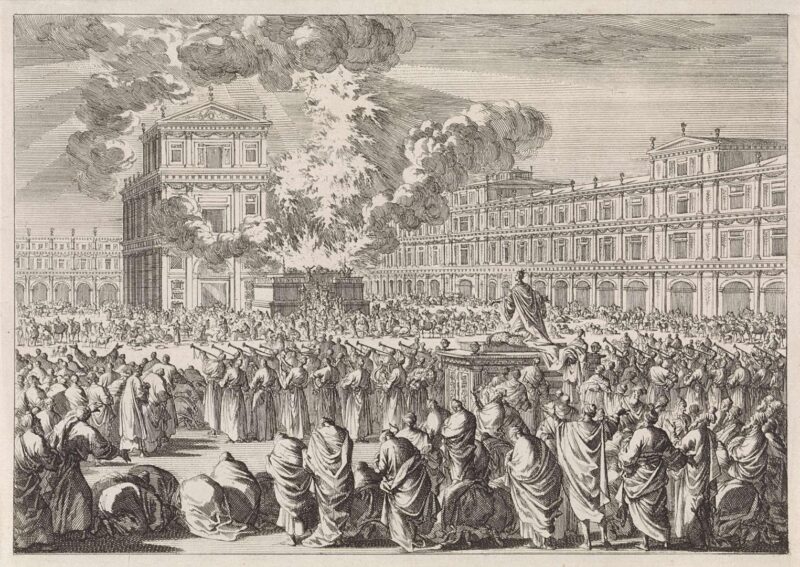October 22, 2023
1 Kings 8:1-53
The Promise of His Presence
1 Kings 8 describes a great gathering of God’s people in Jerusalem. The Temple construction had been completed and King Solomon called for an extraordinary celebration to honor this moment in the history of Israel. The pinnacle of the gathering was marked by the manifest presence of God falling on the Temple in a great cloud of glory.
The presence of God is something every human heart longs for, whether one acknowledges it or not. For some, that longing has been misdirected, obfuscated or calloused over, and for others, numbed by the weight of suffering. Still, some ignore or dismiss this longing through willful unbelief.
Join Pastor Tommy as we study this remarkable account of the dedication of the Temple. This notable event in the history of Israel points to an even greater reality of the resurrected King Jesus, who has made a new and living way for all people who turn to Him to dwell with God today and for eternity.


